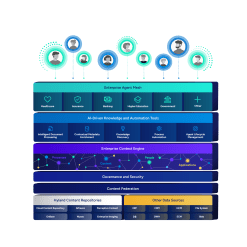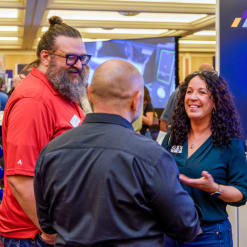Gain the support of a community
When you become a customer or partner, you can connect with Hyland employees, peers and partners on Hyland Community — your source for the latest information on products, solutions and more.
Make the most of your investment or gain insights into a product with input from real customers.




















